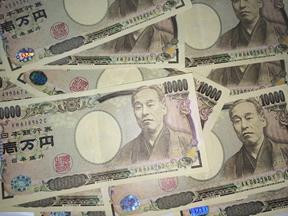Japan's Finance Minister Shunichi Suzuki has signaled a potential intervention in the exchange-rate market following the yen's drastic fall to a 38-year low against the U.S. dollar. This decline has raised concerns about its impact on the economy, prompting government officials to consider necessary actions to stabilize the currency.
Suzuki emphasized the need for stability in exchange rates, stating, "It's desirable for exchange rates to move stably. Rapid, one-sided moves are undesirable. In particular, we're deeply concerned about the effect on the economy." He further assured that the authorities are closely monitoring the situation with a high sense of urgency and will take necessary measures if required.
Chief Cabinet Secretary Yoshimasa Hayashi echoed Suzuki's sentiments, highlighting that Tokyo will take "appropriate" action against excessive currency movements. However, he refrained from commenting on specific yen levels or potential interventions.
The yen stood at 160.52 per dollar on Thursday, nearing the 38-year low of 160.88 recorded on Wednesday. This significant drop has heightened market speculation about imminent yen-buying intervention. The yen's value has plummeted by 12% against the dollar this year, driven primarily by the wide interest rate gap between Japan and the United States.
Masafumi Yamamoto, chief currency strategist at Mizuho Securities, noted in a research note that authorities are likely concerned not only about the speed but also the level of the yen's decline. He warned, "Unless they intervene, there's a risk the yen will slide toward 162."
Analysts remain skeptical about the effectiveness of verbal warnings or even intervention to reverse the yen's decline, which is mainly influenced by uncertainty regarding the U.S. Federal Reserve's interest rate decisions. While the Bank of Japan (BOJ) has hinted at a possible interest rate hike, any increase from the current near-zero short-term policy target would still result in comparatively low borrowing costs for Japan.
Economy Minister Yoshitaka Shindo acknowledged that a weak yen contributes to rising inflation through increased import costs. "A weak yen is among factors that push up inflation, so we will closely watch the currency's moves in guiding monetary policy," stated BOJ Deputy Governor Shinichi Uchida.
Japan's Ministry of Finance confirmed a previous intervention in May, where it spent 9.8 trillion yen ($61 billion) after the yen hit a 34-year low of 160.245 per dollar on April 29. This marked the first such intervention since October 2022. Carol Kong, an economist and currency strategist at the Commonwealth Bank of Australia, suggested that the Japanese government might be approaching another round of foreign exchange intervention. She noted, "We may be closer to another FX intervention," particularly if upcoming U.S. economic data further weakens the yen.
The yen's persistent decline has prompted Japan's top currency diplomat, Masato Kanda, to issue stronger warnings. He expressed serious concerns over the yen's rapid fall and reiterated the government's readiness to act against excessive volatility. "It is generally accepted that the current weakness in the yen is not necessarily justified, therefore believed to be driven by speculators," Kanda told reporters, emphasizing the authorities' preparedness to intervene.
The BOJ's upcoming policy meeting on July 30-31 is anticipated to be a critical juncture, with some analysts predicting a quantitative tightening (QT) plan announcement accompanied by a rate hike. This could potentially alleviate some pressure on the yen, although the long-term outlook remains uncertain.




